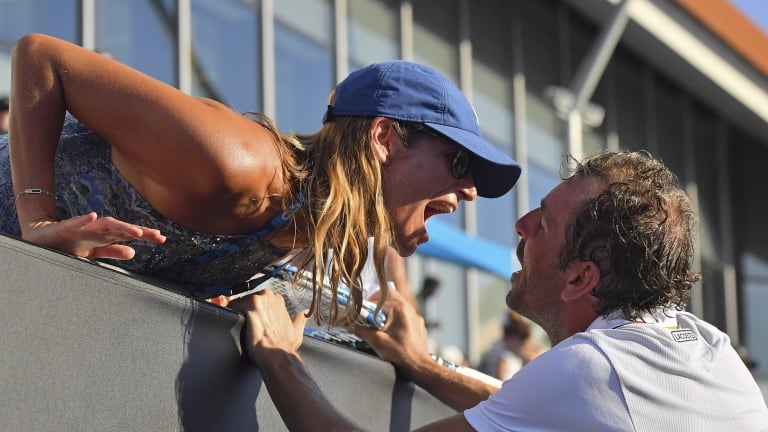“It’s a dry heat, though”: These are the calming words we hear whenever the temperatures soar at the Australian Open. And it’s true, when you’re walking around in Melbourne, 100 degrees can feel less oppressive than, say, 90 degrees in muggy New York City.
But I wouldn’t recommend trying to tell that to the players who had to run around—rather than walk around—in that 100-degree heat on Thursday. Whether it’s beaming through dry air or humid air, the sun has it’s own, special, searing brutality Down Under. Last year at the US Open, I watched Gael Monfils survive five long sets on a hot day without much trouble; yesterday, after a set and a half against Novak Djokovic, he could barely stand up.
According to many of the players, it’s the suddenness of Australian heat that makes it particularly difficult to deal with. The weather in coastal Melbourne changes from one day to the next; this tournament began with temperatures in the 60s. The event also starts just two weeks after the players have finished their off-seasons. By the time the US Open rolls around in August, they’ve been on tour for eight months, and have had a chance to acclimate themselves to America’s swampy summer. Maybe, in light of this difference, the Australian Open should lower the heat-index threshold it uses to determine when it’s too dangerous to play.
Still, not everyone wilted on Thursday; here’s a look at three players, each a surprise in his or her way, whose games soared with the temperatures.
Djokovic's match point against Monfils:
